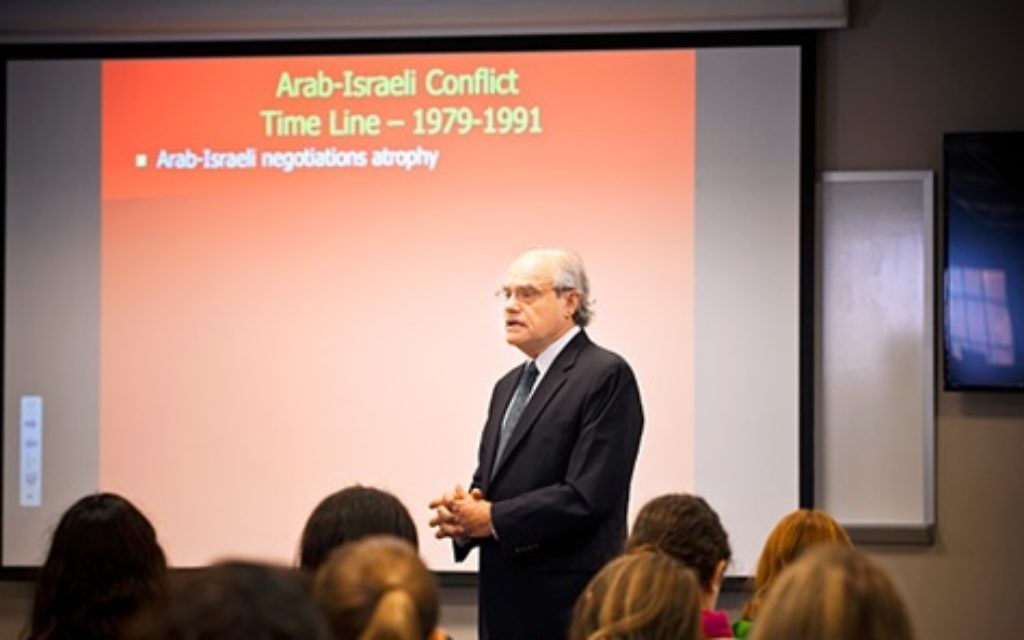Making Wise Choices in College
Scrutiny and planning prove essential when selecting college courses.

If you are a new college freshman or a relative of one, congratulations on embarking on a great adventure. You made it through the arduous college acceptance journey, filled with too many anxious moments.
The next phase is how to best use the opportunities in front of you. For many of you, college will be the best four years of your life. If by graduation in spring 2021 you have discovered what ideas or occupation may fuel your jets for decades to come, you will have succeeded.
Here are some suggestions on contributing to an excellent, if not superb, college experience.
Get The AJT Newsletter by email and never miss our top stories Free Sign Up
Choice and time are now under your control. You can sleep late and miss class. In doing so, you chose to forgo the value of several hundred dollars of tuition money per missed course session.
You can take courses with challenging professors or choose easy ones and secure an easy A.
You can take advantage of a whole cafeteria menu of extracurricular opportunities, including internships.
You can challenge those who spew what you consider nonsense or skate on with silence.
You can choose to study abroad and get a quick course in other cultures, maybe refine a foreign language.
For the first time in your life, no one else is making your schedule; there are no lockers, no school bells. How you choose to use your time matters.
In choosing what to take, choose professors, not titles of courses. To find out who the best professors are in any department, walk into that department during orientation or during the year. Ask who in that department are the professors who earned teaching awards in the past 10 years. Jot down the names. Do that for five or six departments where you want to take classes, then you will have 25 to 30 names.
Next, take your newly minted list and ask complete strangers on campus which professors are the best. Do your due diligence. The choice to take courses is a cherished prerogative. Decide wisely each semester and you will have fun learning experiences, particularly with professors who are not in your field of interest but who have excellent teaching reputations.
In the first 10 days of a semester, most schools allow you to taste a course and see whether you like the professor. I strongly suggest that you read the whole syllabus when you receive it the first day of class.
Here are two actual examples discovered in my field of Middle Eastern history in which there was a syllabus issue.
A course titled “Middle Eastern Politics 1945-Present” at a South Carolina university recently looked very tasty at first glance, but the syllabus revealed that 80 percent of the course’s content dealt with Palestine from 1945 to 1949.
Alternatively, a comparative course on Palestinian-Israeli literature did not have a syllabus distributed at the beginning of the semester; beware of what you do not see! As it turned out, 80 percent of that course focused on Palestinian claims against Israelis.
Those professors had agendas.
What if a professor makes a discomforting remark in class? How do you handle it? What is academic freedom, and what should be challenged?
If you feel up to it, find a colleague who feels equally put out, and together tell the professor during office hours why you feel a comment made was wrong or one-sided. Whatever you do, be polite, and always offer an alternative reading to help make your case. If you complain, you likewise have to correct.
Finally, in the highly charged political environment in which colleges operate today, where multiple voices abound, be prepared to hold your ground, take a stand and defend the values that got you to this moment.
You do not want to look back in four years and say you missed unique opportunities because you made bad choices, were timid or slept late.
For 40 years, Ken Stein has taught Middle Eastern history and political science at Emory University, www.ismi.emory.edu.
Emory’s No. 1
The Forward recently released its first College Guide, and it rated Emory University the No. 1 college in the nation for Jewish students.
Based on a 100-point scale addressing 50 variables, Emory scored 85.33, including a perfect 30 out of 30 for academics and 18.33 out of 20 for Israel (multiple pro-Israel organizations on campus without any BDS resolution ever being introduced).
The rest of Forward top 10: University of Pennsylvania, Washington University in St. Louis, Harvard University, Vanderbilt University, Cornell University, Tulane University, Brown University, Columbia University and American University. The highest-ranking public school is New York’s Queens College at 14.
Georgia Tech is 110th, and the University of Georgia is 129th. No other Georgia schools appear on the list of 171 colleges and universities.
“The Jewish community at Emory is like no other community on a college campus,” Noa Shapiro-Franklin, Emory Hillel’s vice president of Shabbat, wrote in a column for The Forward. “There is a level of comfort and support that you receive from the community that makes it feel like you belong. You are sure to find your Jewish home at Emory Hillel!”




comments